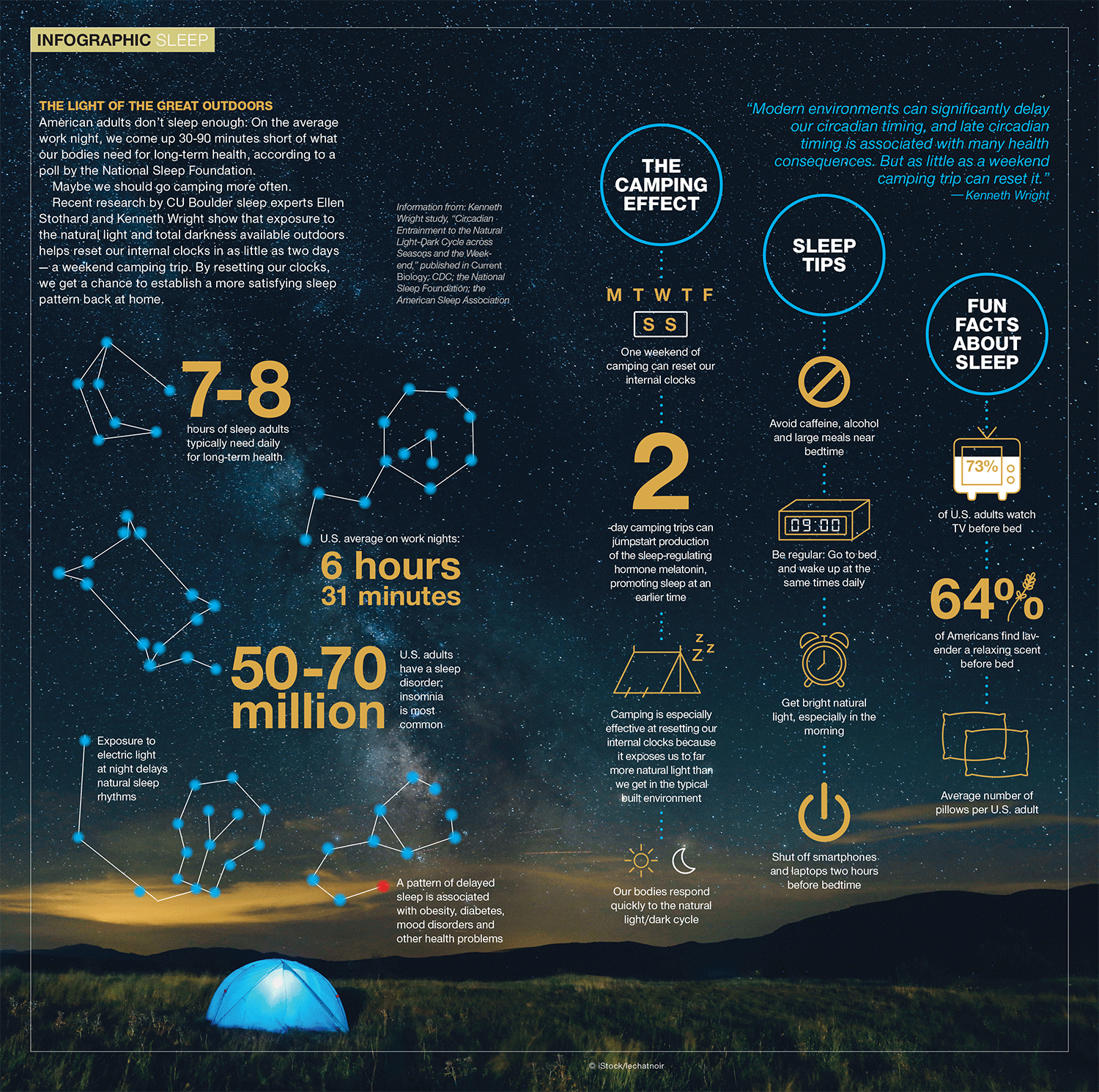The Light of the Great Outdoors
American adults don’t sleep enough: On the average work night, we come up 30-90 minutes short of what our bodies need for long-term health, according to a poll by the National Sleep Foundation.
Maybe we should go camping more often.
Recent research by CU Boulder sleep experts Ellen Stothard and Kenneth Wright show that exposure to the natural light and total darkness available outdoors helps reset our internal clocks in as little as two days — a weekend camping trip. By resetting our clocks, we get a chance to establish a more satisfying sleep pattern back at home.

Information from: Kenneth Wright study, “Circadian Entrainment to the Natural Light-Dark Cycle across Seasons and the Weekend,” published in Current Biology; CDC; the National Sleep Foundation; the American Sleep Association





